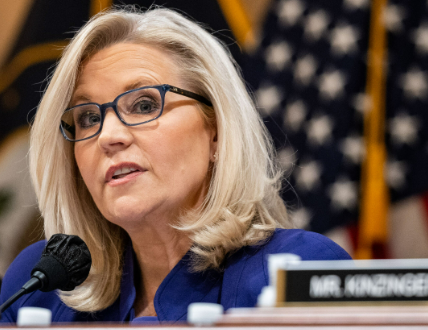Energy bills to rise again from April in bitter blow to millions of cash-strapped Brits – as Ofgem price cap rises to £1,849-a-year_Nhy
The energy bills of millions of households across Britain will rise by 6.4 per cent from April when Ofgem increases its price cap for a third consecutive quarter.
The regulator said the average bill for households in England, Scotland and Wales on a standard variable tariff will increase from the current £1,738 a year to £1,849.
The rise will equate to £111 for an average household per year, or around £9.25 a month, over the three-month period of the price cap from April 1 to June 30.
This is 9.4 per cent or £159 higher than this time last year – but £531 or 22 per cent lower than at the height of the energy crisis at the start of 2023.
The rise is because of an increase in gas prices across Europe, caused by a slump in the amount of gas that is held in storage across the continent.
Ofgem confirmed that the recent spike in wholesale prices accounted for around 78 per cent of the total increase. A small increase in policy costs and associated inflationary pressures made up a further 22 per cent, the regulator added.
It comes after forecasting group Cornwall Insights last week said it expected the typical annual household energy bill would rise by about £85 to £1,823.
The energy price cap sets a maximum price that energy companies can charge people in England, Scotland and Wales for each unit of energy they use.
Ofgem changes the price cap for households every three months.
While the price cap has gone up, in practice, most people will pay less to their energy suppliers in the spring and summer months.
That is because households typically use less energy then, but the rate they are paying per unit would still rise.
The increase in the price cap also marks the third consecutive time costs have risen in recent quarters.
And it comes as a blow to Labour’s election promise of reducing energy bills by ‘up to £300 by 2030’.
Martin Lewis, founder of MoneySavingExpert.com, urged those households still on a standard variable tariff to switch to a fixed tariff as soon as possible.
Speaking on BBC Radio 4’s Today Programme, Mr Lewis said the cheapest fixed deals currently available were around 4 per cent cheaper than the current price cap, which would increase to around 10 per cent less once Ofgem’s latest increase takes effect from April 1 .
‘Based on the predictions at the moment, once it goes up in April it ain’t coming back down to these levels for the next year. So as you can fix currently at cheaper than the current cap, never mind before it goes up, it is a no brainer to fix.’
Mr Lewis suggested consumers wait until around lunchtime on Tuesday to check for deals, and to make sure to use comparison sites that take in the whole market by default rather than cutting out some suppliers who do not pay to be listed, as he understood some cost-effective deals were due to be launched this morning.
‘And remember that when you do a comparison, remember that the savings you’re given on the cheapest fix are compared to the current price cap. So they won’t look big, they might say £30, £40 a year. But remember it’s going up by 6 per cent so if you do nothing your price would rise whereas if you fix your price would drop.’
| Cost | January to March 2025 | April to June 2025 | Change |
|---|---|---|---|
| Buying energy for customers (wholesale costs) | £755 | £841 | £86 |
| Unexpected temporary cost adjustments (adjustment allowance) | £28 | £28 | £0 |
| Build, fix and repair pipes and wires to transport energy (network costs) | £370 | £372 | £2 |
| Supplier business costs (operating) | £232 | £235 | £4 |
| Government social and environmental schemes (policy) | £187 | £198 | £11 |
| Earnings Before Interest and Taxes (EBIT) allowance | £43 | £45 | £2 |
| Uncertain costs and risks (headroom) | £18 | £20 | £2 |
| Extra costs for supplying energy customers using different payment methods (payment uplift) | £16 | £16 | £1 |
| Making sure prepayment and Direct Debit customers pay the same standing charge (levelisation allowance) | £7 | £6 | -£1 |
| VAT (5%) | £83 | £88 | £5 |
| TOTAL | £1,738 | £1,849 | £111 |
Richard Neudegg, director of regulation at Uswitch.com, described the announcement as a ‘hat-trick hike’.
He said: ‘Millions of households still sitting on standard tariffs, which follow the price cap, are about to see their bills rise for the third time in a row.
‘The hat-trick hike of 6.4 per cent in April will add £111 to the average annual bill in yet another price cap blow for standard tariff customers.
‘Consumers can take action to avoid this. If you are still riding the rising rates, now is the time to find a better deal.
‘There are plenty of fixed deals available that are cheaper than today’s rates, let alone the higher April prices. A fixed deal could protect you from further price increases for 12 months or longer.’
He said the cheapest fix on the market, currently from Outfox the Market, could save the average household around £179 per year versus the April price cap.
The cheapest large supplier fixed deal is from British Gas and could save the average household about £172 per year against the April rates, Mr Neudegg added.
Ofgem chief executive Jonathan Brearley said: ‘We know that no price rise is ever welcome, and that the cost of energy remains a huge challenge for many households.
‘But our reliance on international gas markets leads to volatile wholesale prices, and continues to drive up bills, which is why it’s more important than ever that we’re driving forward investment in a cleaner, homegrown system.
‘Energy debts that began during the energy crisis have reached record levels and without intervention will continue to grow. This puts families under huge stress and increases costs for all customers. We’re developing plans that could give households with unmanageable debt the clean slate they need to move forward.
‘We welcome the Government’s support for these plans, and their plans to expand the Warm Home Discount, which will also offer financial help to nearly three million more households that need it most.
‘If anyone is worried about paying their bills, I would urge them to reach out to their supplier to make sure they’re getting all the help they can. Where possible, switching or fixing tariffs now could also help to bring costs down and provide certainty over coming payments.’
Ofgem said four million customers have moved to a fixed tariff since its last price cap announcement in November, taking the total to 11million, meaning they will not be affected by the increase.
This was the largest movement of customers coming off the price cap and on to a fixed deal since the energy crisis, the regulator said.

Ofgem said the energy price cap will increase by 6.4 per cent from April 1 (stock picture)
However, Citizens Advice chief executive Dame Clare Moriarty said the service was helping people every day who ‘simply can’t afford this latest price hike’ as its latest research showed the number of people living in debt to their energy supplier had reached a new high of nearly seven million.
Dame Clare said: ‘We’re particularly concerned about households with children, where over one in three struggle to afford bills, rising to more than half of those on low incomes.
‘The Government can’t let another winter go by without targeted support for those most in need, and there is a way of paying for this. Our recent analysis found energy network companies made billions in excess profits while households have faced soaring bills and it’s only right this money be used to help fund better targeted bill support and much-needed debt relief.’
The Government has started a massive push towards wind and solar energy in recent months to make the UK less dependent on global gas prices.
Experts have said this will likely make energy more affordable in the long term, but campaigners called for ministers to provide short-term help for people struggling with bills next winter.
Energy Secretary Ed Miliband said of the price cap announcement: ‘This is worrying news for many families. This Government is determined to do everything we can to protect people from the grip of fossil fuel markets.
‘Expanding the Warm Home Discount can help protect millions of families from rising energy bills, offering support to consumers across the country.
‘Alongside this, the way to deliver energy security and bring down bills for good is to deliver our mission to make Britain a clean energy superpower with homegrown clean power that we in Britain control.’
Simon Francis, coordinator of campaign group the End Fuel Poverty Coalition, called for billions more in support for vulnerable customers.
He said it is ‘crucial to provide support for vulnerable households struggling with energy costs now’, calling for £13.2 billion of support at the Government’s upcoming spending review.
‘The big question will be how do we pay for these improvements in support. Both Warm Home Discounts and debt relief are traditionally funded through our energy bills.
‘Yet the energy industry makes billions of pounds in profit every year and it beggars belief that Ofgem is increasing the profit allowance for suppliers in the current climate.
‘For now, the advice for households is to make the most of existing energy efficiency schemes and if customers do shop around for a lower energy bill, they must use their own energy usage on price comparison sites.’
Steve Vaid, chief executive at the Money Advice Trust, the charity that runs National Debtline, said: ‘The impact of high energy prices is clear to see. Energy arrears are now the second most common debt we are helping people with, behind only credit cards.

The regulator said a recent spike in wholesale prices was the main driver of the price rise
‘This latest price rise will only add to the challenges many people face in keeping up with their bills.
‘Ofgem must press ahead with their plans for a Help to Repay scheme, to bring energy debt down, while the Government must urgently bring in targeted bill support through an energy social tariff.
‘Anyone struggling with their energy bills, or worried about their finances, should contact a free debt advice charity, like National Debtline.’
David Buttress, chief executive of Ovo Energy, called for a social tariff to help vulnerable customers.
He said: ‘With bills rising again the Government, regulator, and energy companies must work together to introduce a social tariff to shield the most vulnerable from high prices.’
The price cap increase follows a warning to households of at least months of pain after the Bank of England forecast higher-than-expected inflation this summer due to rising bills.
The Bank’s warning that inflation will hit a peak of 3.7 per cent later in the summer follows a multitude of predicted hikes to household expenses, including food, energy, water, council tax and bus fares.



